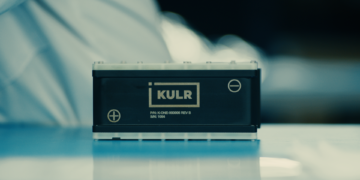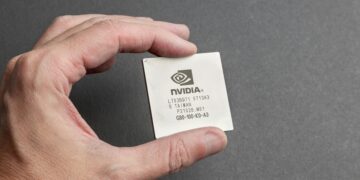Stoxpo: Immunocore has made strides with KIMMTRAK in treating uveal melanoma. What has contributed to this success?
Bahija Jallal: KIMMTRAK is indeed a significant achievement for us, and it’s the result of over a decade of commitment to unlocking the immune system’s potential to fight cancer. It is the first and only approved therapy for metastatic uveal melanoma, which historically had few treatment options. Our ImmTAC platform is what sets KIMMTRAK apart—it allows T-cells to recognize and target cancer cells with precision. This breakthrough not only validates our technology but also paves the way for developing therapies for other difficult-to-treat cancers.
Stoxpo: Can you share more about the pipeline and what excites you about Immunocore’s future programs?
Bahija Jallal: Our pipeline is broad, addressing both oncology and infectious diseases. In addition to KIMMTRAK, we’re advancing tebentafusp for cutaneous melanoma, currently in a Phase 2/3 trial. We also have IMC-F106C in a Phase 3 study for advanced melanoma and in early trials for other solid tumors, like ovarian and non-small cell lung cancer. Each program has the potential to revolutionize the standard of care, especially in cancers where existing options are limited. Beyond oncology, we’re exploring applications in chronic infections like hepatitis B and immune modulation in autoimmune diseases, demonstrating our technology’s versatility.
Stoxpo: Immunotherapy is a competitive field. What differentiates Immunocore’s approach from other companies?
Bahija Jallal: Immunocore’s approach is distinct because of our ImmTAC (Immune Mobilising Monoclonal TCRs Against Cancer) platform, which targets the immune system in a highly specific way. Unlike traditional therapies, ImmTACs can recognize targets that are unique to cancer cells, including those that other therapies often miss. This precision enables us to potentially tackle ‘cold’ tumors—those resistant to other immunotherapies. Our focus is to harness this precision to make meaningful changes in patient outcomes, especially in cancers with poor prognoses.
Stoxpo: Expanding beyond oncology, what other areas is Immunocore exploring?
Bahija Jallal: Our work extends into infectious diseases, such as chronic hepatitis B, and autoimmune diseases, like type 1 diabetes. We’re leveraging our technology to address immune responses in these diseases. For example, in hepatitis B, we’re testing IMC-I109V, with the aim of finding a functional cure, not just a treatment. Similarly, in autoimmune diseases, our preclinical work on IMC-S118AI in type 1 diabetes focuses on modulating the immune system to prevent the body from attacking its own cells. These projects hold transformative potential.
Stoxpo: Immunocore has a presence in the UK and the U.S. How does this dual presence support your mission?
Bahija Jallal: Having operations in both the UK and the U.S. gives us access to a diverse pool of talent and resources, and it allows us to work closely with both European and U.S. regulatory bodies. This is advantageous for accelerating clinical trials and achieving approvals across major markets. It’s also vital for our collaborations, as it allows us to build partnerships with academic institutions and pharmaceutical companies on both sides of the Atlantic, furthering our mission to make impactful therapies accessible globally.
Stoxpo: What are the primary challenges in developing treatments for complex diseases, and how is Immunocore navigating these?
Bahija Jallal: Developing immunotherapies for complex diseases requires overcoming scientific and logistical challenges, especially when targeting diverse tumors or chronic infections. One major hurdle is ensuring that our therapies remain effective in different patient populations and tumor types. To address this, we conduct rigorous clinical trials and leverage our translational research team to gather insights from real-world data. We’re also focused on educating the medical community and patients about the unique benefits of our therapies, which is crucial for wider adoption.
Stoxpo: Looking ahead, where do you envision Immunocore in the next 5 to 10 years?
Bahija Jallal: I see Immunocore as a leader not only in oncology but also as a key innovator in infectious and autoimmune disease treatments. Our goal is to expand our portfolio, bringing our technology to more patients across a range of indications. We’re committed to ongoing R&D, building partnerships, and scaling our commercial capabilities. Ultimately, we envision a future where Immunocore is synonymous with groundbreaking treatments that change lives and address significant unmet needs in medicine.










